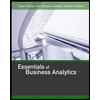Forecasts using Point-of-Sales (POS) systems are based on A.different deterministic factors that affect market demandB. developments and findings in markets that are relatively similar C.the use of store scanners in weekly and biweekly store audits D.computer analysis of past performance data to predict future market demand 2.For retailers and channel members, an important method of forecasting sales is A.time series models B.econometric models C.sales force composite estimates D.point-of-sales (POS) based projections 3. In primary research, once data has been collected and the questionnaire has been coded, the next step for the researcher is to A.analyze the data B.interpret the data results C.make recommendations from the findings D.input the data into a computer program 4.Among the sampling decisions that must be made, researchers must select the _____, which is the group of individuals who will be included in the survey. A.sample size B.sampling procedure C.sampling unit D.random probability sample
Forecasts using Point-of-Sales (POS) systems are based on A.different deterministic factors that affect market demandB. developments and findings in markets that are relatively similar C.the use of store scanners in weekly and biweekly store audits D.computer analysis of past performance data to predict future market demand 2.For retailers and channel members, an important method of forecasting sales is A.time series models B.econometric models C.sales force composite estimates D.point-of-sales (POS) based projections 3. In primary research, once data has been collected and the questionnaire has been coded, the next step for the researcher is to A.analyze the data B.interpret the data results C.make recommendations from the findings D.input the data into a computer program 4.Among the sampling decisions that must be made, researchers must select the _____, which is the group of individuals who will be included in the survey. A.sample size B.sampling procedure C.sampling unit D.random probability sample
Essentials of Business Analytics (MindTap Course List)
2nd Edition
ISBN:9781305627734
Author:Jeffrey D. Camm, James J. Cochran, Michael J. Fry, Jeffrey W. Ohlmann, David R. Anderson
Publisher:Jeffrey D. Camm, James J. Cochran, Michael J. Fry, Jeffrey W. Ohlmann, David R. Anderson
Chapter6: Statistical Inference
Section: Chapter Questions
Problem 40P
Related questions
Question
1.Forecasts using Point-of-Sales (POS) systems are based on
A.different deterministic factors that affect market demandB. developments and findings in markets that are relatively similar
C.the use of store scanners in weekly and biweekly store audits
D.computer analysis of past performance data to predict future market demand
2.For retailers and channel members, an important method of forecasting sales is
A.time series models
B.econometric models
C.sales force composite estimates
D.point-of-sales (POS) based projections
3.
In primary research, once data has been collected and the questionnaire has been coded, the next step for the researcher is to
A.analyze the data
B.interpret the data resultsC.make recommendations from the findings
D.input the data into a computer program
4.Among the sampling decisions that must be made, researchers must select the _____, which is the group of individuals who will be included in the survey.
A.sample size
B.sampling procedure C.sampling unit
D.random probability sample
Expert Solution
This question has been solved!
Explore an expertly crafted, step-by-step solution for a thorough understanding of key concepts.
This is a popular solution!
Trending now
This is a popular solution!
Step by step
Solved in 3 steps

Knowledge Booster
Learn more about
Need a deep-dive on the concept behind this application? Look no further. Learn more about this topic, accounting and related others by exploring similar questions and additional content below.Recommended textbooks for you

Essentials of Business Analytics (MindTap Course …
Statistics
ISBN:
9781305627734
Author:
Jeffrey D. Camm, James J. Cochran, Michael J. Fry, Jeffrey W. Ohlmann, David R. Anderson
Publisher:
Cengage Learning

Principles of Accounting Volume 1
Accounting
ISBN:
9781947172685
Author:
OpenStax
Publisher:
OpenStax College

Cornerstones of Cost Management (Cornerstones Ser…
Accounting
ISBN:
9781305970663
Author:
Don R. Hansen, Maryanne M. Mowen
Publisher:
Cengage Learning

Essentials of Business Analytics (MindTap Course …
Statistics
ISBN:
9781305627734
Author:
Jeffrey D. Camm, James J. Cochran, Michael J. Fry, Jeffrey W. Ohlmann, David R. Anderson
Publisher:
Cengage Learning

Principles of Accounting Volume 1
Accounting
ISBN:
9781947172685
Author:
OpenStax
Publisher:
OpenStax College

Cornerstones of Cost Management (Cornerstones Ser…
Accounting
ISBN:
9781305970663
Author:
Don R. Hansen, Maryanne M. Mowen
Publisher:
Cengage Learning

Financial Reporting, Financial Statement Analysis…
Finance
ISBN:
9781285190907
Author:
James M. Wahlen, Stephen P. Baginski, Mark Bradshaw
Publisher:
Cengage Learning

Principles of Accounting Volume 2
Accounting
ISBN:
9781947172609
Author:
OpenStax
Publisher:
OpenStax College

College Accounting (Book Only): A Career Approach
Accounting
ISBN:
9781337280570
Author:
Scott, Cathy J.
Publisher:
South-Western College Pub